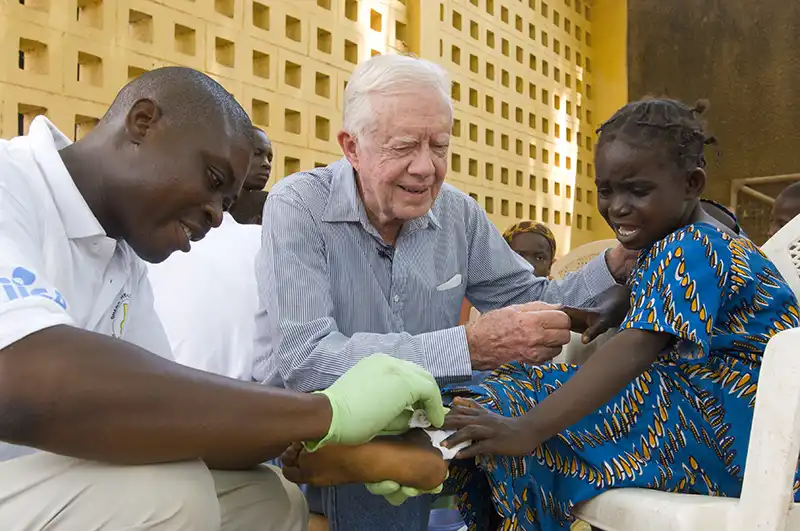Recently, the world lost a person of distinction who modeled the way as a leader of character. Jimmy Carter was born into poverty in rural Georgia in 1924. Through hard work and perseverance, he overcame hardships to rise to the highest office in the land. After a lifetime of leading with grace and humility he died at the age of 100 years.
President Carter’s story of rising from humble beginnings is deeply inspiring. He was awarded his high school diploma in 11th grade because his school didn’t have a 12th. He went on to participate in Georgia Tech’s Navy Reserve Officer Training Corps (ROTC) program for one year, then entered the USNA where he graduated, in the top 10% of his class, a year early due to wartime accelerated promotions. He passed the notoriously grueling interview with Admiral Rickover and was accepted as a nuclear officer. He later served on the USS Seawolf, one of the first nuclear submarines, and helped advance the Navy’s nuclear program.
How We Choose to Lead
I got the inspiration for this blog from René Perez, pastor at the John Wesley United Methodist church in Falmouth, MA. Pastor René delivered a remarkable sermon showcasing President Carter as the kind of leader and human being we can all aspire to emulate. Something Pastor René said stuck with me, “We all get to choose how we lead, and how we lead makes a difference in the kind of leader we become.” Such wise words! Each of us gets to use our personal agency to choose what kind of leader we want to be. Nobody can force us to be a good leader of a poor leader. The choice is ours.
The Power of Observing
The key to choosing wisely is observing closely. Observe good leaders you admire to learn how to treat people well; likewise, observe poor leaders to internalize a commitment to how you’ll never treat others. As a young officer I learned viscerally, from poor leaders, what I would never do to others. Looking back, I’m glad for those poor leaders because of how they shaped me to become a better leader. But we all need positive experiences, too, and President Carter is a shining example of a leader to emulate. He understood that leadership isn’t so much about position or status as it is about service. He chose to lead by serving. And he did so with grace and humility.
Character Matters Most
President Carter may not be best remembered for his accomplishments in office, but he built a legacy of goodwill following his presidency. As President Biden said last week in eulogizing President Carter, President Carter will be forever remembered for his strength of character. President Carter’s grandson, Jason Carter, shared that his grandfather modeled integrity by being the same person both in private and in public. Accomplishments are important, but in the end, it’s a person’s character that matters most.
Look in the mirror: Think about the leaders you’ve observed – in what ways have they influenced how you choose to lead? Have you been more influenced by their character traits or their accomplishments?



